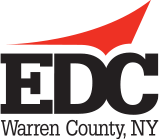Beginning in November, the U.S. Securities and Exchange Commission began requiring publicly listed companies to disclose human capital, or individuals’ knowledge and experience that bring value to an organization.
This is a long-needed recognition of the non-monetary assets workers contribute to business.
Heather E. McGowan wrote in Forbes magazine that from the 1980s until 2019, most business curricula taught that enterprise existed to return profits to investors. McGowan wrote that until the 1970s, human work was measured by contribution to production of goods. She cites data from Aon that shows that physical assets made up 84 percent of value on the Standard & Poor’s 500 in 1975, with only 17 percent of that value intangible or human capital.
By 2020, though, intangible assets comprised 90 percent of all value, the report shows.
While the EDC frequently discusses all the ways we invest in our region’s infrastructure, we are also committed to developing our workforce and ensuring our residents reach their potential. We know the people in our community are its most valuable asset.
Educational opportunities abound for our young people (area high schools team with BOCES and SUNY Adirondack to offer programs for students to take college-level classes, develop skills and jump-start their careers or pursuits of college degrees); young adults (more than 30 higher education institutions are within 50 miles of Warren County); tradesmen (the region’s Local 773 Regional Training Center for plumbers and pipefitters offers apprentice programs); employees of all ages (SUNY Adirondack offers workforce development options, so regional employers have affordably priced ways to extend their workers’ skills); and commerce (the EDC is a member of Saratoga Warren Washington Workforce Development Board, a private-sector board that works to develop resources to address workforce development needs, then facilitates training).
The investments individuals make in their job training, employment, health and well-being make a difference — for each of them, their families and friends, their employers and, in turn, our beautiful region. As investment in human capital increases, so do productivity, wages and job satisfaction. Human capital makes our region stronger, healthier and more attractive to live and work.
